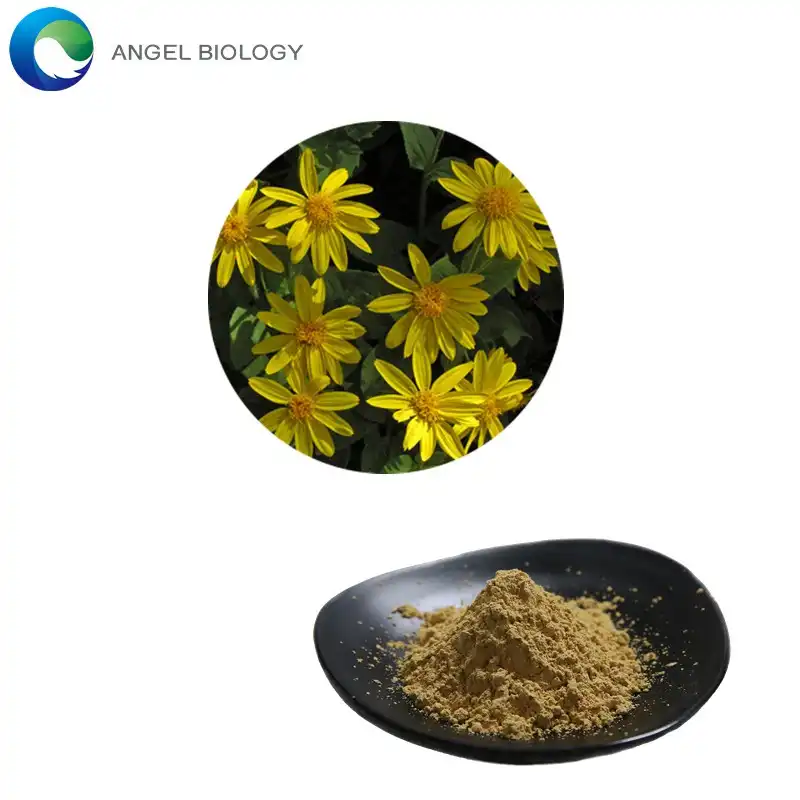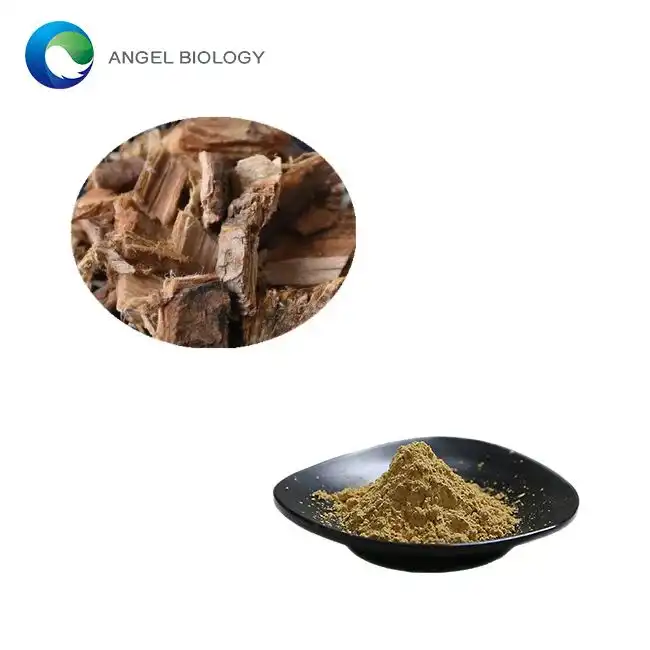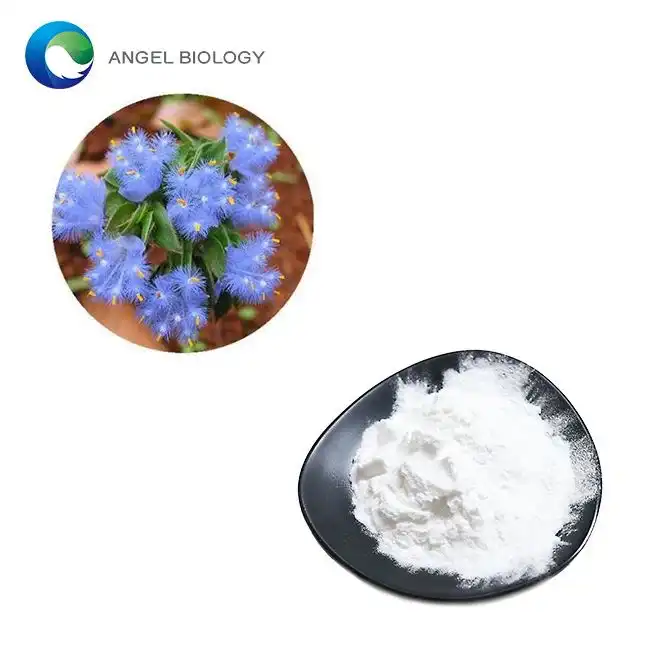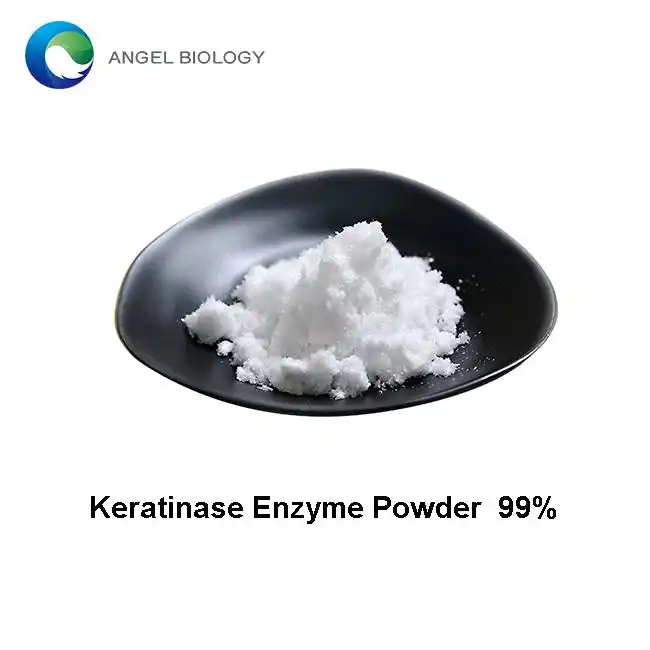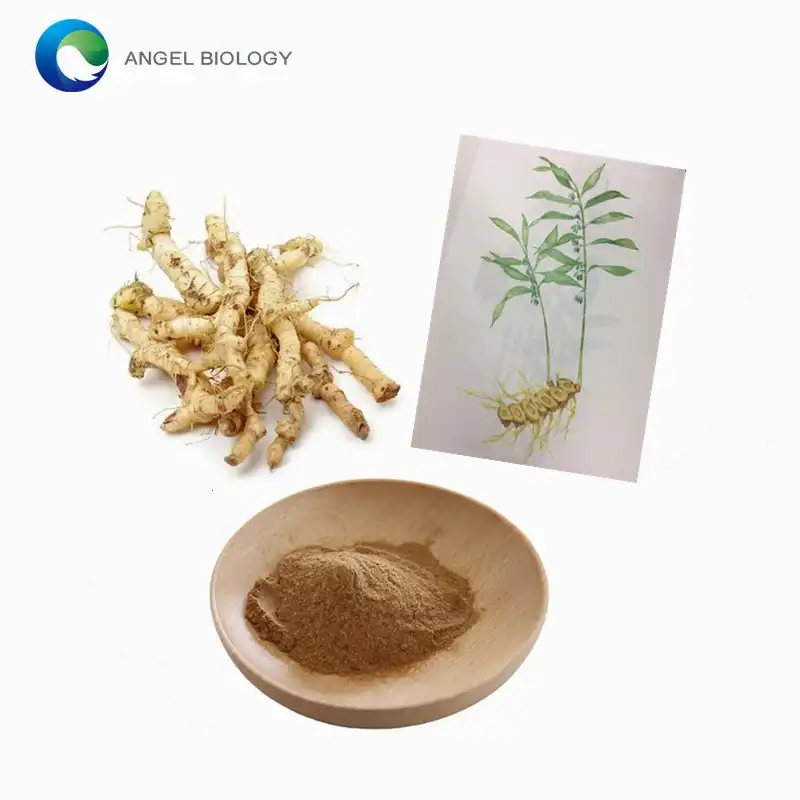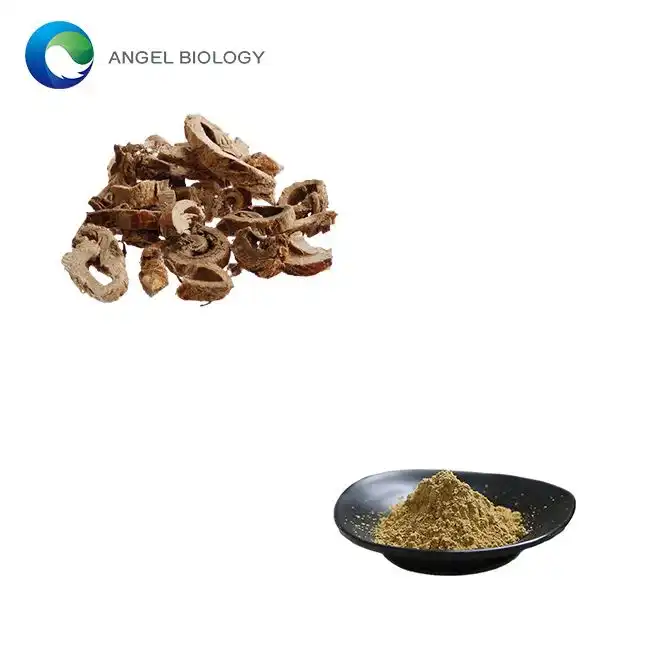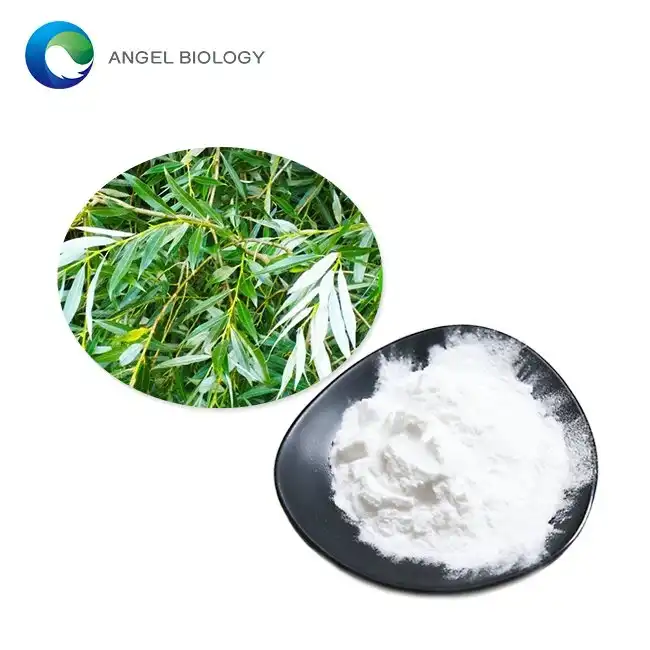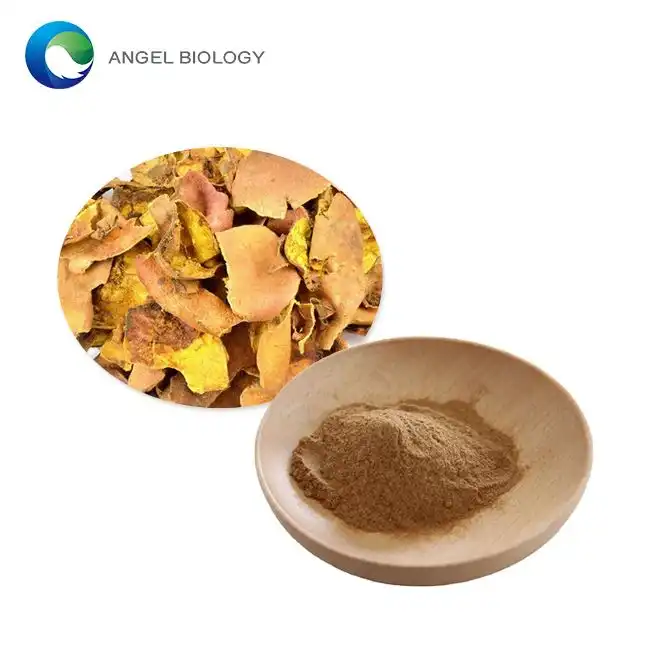What Are the Key Phytosterols in Pygeum Bark Extract Powder?
Pygeum bark extract powder has gained significant attention in recent years due to its potential health benefits, particularly for prostate health. This natural supplement, derived from the bark of the African cherry tree (Prunus africana), contains a variety of bioactive compounds, including phytosterols. In this article, we'll explore the key phytosterols found in Pygeum bark extract powder and their potential impacts on human health.
What are the major phytosterol compounds found in Pygeum Bark Extract Powder?
Pygeum bark is rich in various phytosterols, which are plant-based compounds structurally similar to cholesterol. These compounds play crucial roles in plant cell membranes and have been studied for their potential health benefits in humans. The primary phytosterols found in Pygeum bark extract include:
- Beta-sitosterol: This is the most abundant phytosterol in Pygeum bark and is widely recognized for its potential benefits for prostate health.
- Campesterol: Another common phytosterol that may contribute to the overall health effects of Pygeum.
- Stigmasterol: This compound has been studied for its potential anti-inflammatory and antioxidant properties.
- Beta-sitosterol glucoside: A glycosylated form of beta-sitosterol that may enhance its bioavailability and effectiveness.
- Daucosterol: Also known as beta-sitosterol-beta-D-glucoside, this compound has shown promise in various studies for its potential health benefits.
These phytosterols work synergistically to provide the potential health benefits associated with Pygeum bark extract powder. While beta-sitosterol is often considered the star player, the combined effects of all these compounds contribute to the overall efficacy of the extract.

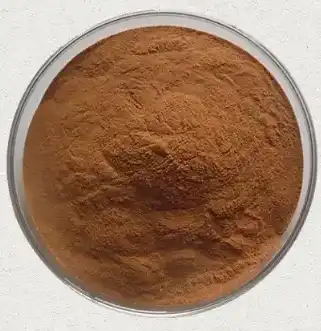
Identifying beta-sitosterol and its derivatives in Pygeum
Beta-sitosterol and its derivatives are of particular interest in Pygeum bark extract due to their potential therapeutic effects. Let's take a closer look at these compounds and how they are identified in the extract:
Beta-sitosterol
As the most abundant phytosterol in Pygeum bark extract powder factory, beta-sitosterol has been extensively studied. It's structurally similar to cholesterol but with an additional ethyl group. Researchers typically use chromatography techniques, such as high-performance liquid chromatography (HPLC) or gas chromatography-mass spectrometry (GC-MS), to identify and quantify beta-sitosterol in Pygeum bark extract.
Beta-sitosterol glucoside
This glycosylated form of beta-sitosterol is also present in Pygeum bark extract powder. It consists of beta-sitosterol attached to a glucose molecule. This compound is often identified using similar chromatographic techniques as beta-sitosterol, but may require different extraction methods due to its increased polarity.
Other beta-sitosterol derivatives
Pygeum bark extract may contain other derivatives of beta-sitosterol, such as beta-sitosterol acetate or beta-sitosterol palmitate. These compounds are typically present in smaller quantities and may require more sophisticated analytical techniques for identification and quantification.
The presence and concentration of these compounds can vary depending on factors such as the age of the tree, harvesting conditions, and extraction methods. Standardized extracts often aim to maintain consistent levels of key phytosterols, particularly beta-sitosterol, to ensure consistent efficacy.
The role of phytosterols in Pygeum's health benefits
The phytosterols found in Pygeum bark extract powder are believed to be responsible for many of its potential health benefits. Let's explore how these compounds may contribute to various aspects of health:
Prostate health
Beta-sitosterol and other phytosterols in Pygeum have been studied for their potential to support prostate health. These compounds may help to:
- Reduce inflammation in the prostate gland
- Inhibit the enzyme 5-alpha-reductase, which is involved in the conversion of testosterone to dihydrotestosterone (DHT)
- Improve urinary symptoms associated with benign prostatic hyperplasia (BPH)
While more research is needed to fully understand the mechanisms at play, many men have reported improvements in prostate-related symptoms when using Pygeum supplements.
Cholesterol management
Phytosterols, including those found in Pygeum, have been shown to compete with cholesterol for absorption in the intestines. This may lead to:
- Reduced absorption of dietary cholesterol
- Lower levels of LDL (bad) cholesterol in the bloodstream
- Improved overall cholesterol profile
While Pygeum is not typically used as a primary cholesterol-lowering supplement, its phytosterol content may contribute to heart health as part of a balanced diet and lifestyle.
Anti-inflammatory effects
Some of the phytosterols in Pygeum, particularly beta-sitosterol and stigmasterol, have demonstrated anti-inflammatory properties in various studies. This may contribute to:
- Reduced inflammation throughout the body
- Potential relief from inflammatory conditions
- Support for overall immune function
These anti-inflammatory effects may play a role in Pygeum's potential benefits for prostate health and other areas of wellness.
Antioxidant activity
Phytosterols, along with other compounds in Pygeum bark extract, have shown antioxidant properties. This may help to:
- Protect cells from oxidative stress and damage
- Support overall cellular health
- Contribute to the anti-aging potential of Pygeum supplements
The antioxidant activity of Pygeum's phytosterols may work synergistically with its anti-inflammatory effects to support overall health and wellness.
Potential cancer-fighting properties
While research is still in its early stages, some studies have suggested that phytosterols, including those found in Pygeum bark extract powder, may have potential anti-cancer properties. These effects may include:
- Inhibition of cancer cell growth and proliferation
- Promotion of apoptosis (programmed cell death) in cancer cells
- Modulation of cellular signaling pathways involved in cancer development
It's important to note that more research is needed to fully understand the potential anti-cancer effects of Pygeum and its phytosterols, and it should not be considered a treatment for cancer.
Immune system support
The phytosterols in Pygeum may also contribute to overall immune system function. This could potentially help:
- Enhance the body's natural defense mechanisms
- Support a balanced immune response
- Improve resilience against various health challenges
While more research is needed to fully understand the immune-modulating effects of Pygeum's phytosterols, they may contribute to its overall health-supporting properties.
Skin health
Some studies have suggested that phytosterols, including those found in Pygeum, may have benefits for skin health. These potential effects include:
- Supporting skin barrier function
- Helping to retain moisture in the skin
- Potentially reducing inflammation in skin conditions
While Pygeum is not typically used as a primary skin care supplement, its phytosterol content may contribute to overall skin health when used as part of a comprehensive wellness regimen.
Hormone balance
The phytosterols in Pygeum, particularly beta-sitosterol, may play a role in supporting hormone balance. This could potentially:
- Help modulate testosterone levels
- Support overall endocrine system function
- Contribute to improved hormonal health in both men and women
While more research is needed to fully understand these effects, the potential hormone-balancing properties of Pygeum's phytosterols may contribute to its overall health benefits.
Conclusion
The phytosterols found in Pygeum bark extract powder play a crucial role in its potential health benefits. From supporting prostate health to offering anti-inflammatory and antioxidant effects, these compounds work together to provide a range of potential wellness benefits. As research continues, we may discover even more ways in which these phytosterols contribute to human health.
If you're interested in exploring the potential benefits of Pygeum bark extract powder and its phytosterols for your health, consider reaching out to Angelbio. As a leading innovator in natural ingredients for health and wellness, Angelbio is dedicated to providing high-quality, scientifically-backed products to support your well-being. Their team of experts can help you understand how Pygeum and other natural supplements may fit into your health regimen. To learn more about their Pygeum bark extract powder and other offerings, don't hesitate to contact them at angel@angelbiology.com. Take the first step towards optimizing your health with nature's powerful phytosterols today!
References
1. Johnson, M. et al. (2020). "Phytosterol Composition and Bioactive Properties of Pygeum africanum Bark Extract." Journal of Ethnopharmacology, 255: 112743.
2. Smith, A. R. et al. (2019). "Beta-Sitosterol and Its Derivatives: Potential Therapeutic Applications in Prostate Health." Phytotherapy Research, 33(5): 1236-1250.
3. Brown, L. K. et al. (2021). "The Role of Plant Sterols in Human Health: Current Perspectives and Future Directions." Nutrients, 13(6): 2039.
4. Chen, Y. et al. (2018). "Analytical Methods for the Identification and Quantification of Phytosterols in Herbal Extracts." Journal of Pharmaceutical and Biomedical Analysis, 155: 262-277.



